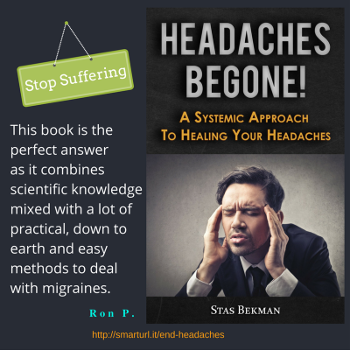Third Narrative. Chapter IX. Part 5
Description
This section is from the book "The Moonstone. A Romance", by Wilkie Collins. Also available from Amazon: The Moonstone.
Third Narrative. Chapter IX. Part 5
"Mr. Blake!" he said, suddenly. "You are in bad company. The cloud of a horrible accusation has rested on me for years. I tell you the worst at once. I am a man whose life is a wreck, and whose character is gone."
I attempted to speak. He stopped me.
"No," he said. "Pardon me; not yet. Don't commit yourself to expressions of sympathy which you may afterwards wish to recall. I have mentioned an accusation which has rested on me for years. There are circumstances in connexion with it that tell against me. I cannot bring myself to acknowledge what the accusation is. And I am incapable, perfectly incapable, of proving my innocence. I can only assert my innocence. I assert it, sir, on my oath, as a Christian. It is useless to appeal to my honour as a man."
He paused again. I looked round at him. He never looked at me in return. His whole being seemed to be absorbed in the agony of recollecting, and in the effort to speak.
"There is much that I might say," he went on, "about the merciless treatment of me by my own family, and the merciless enmity to which I have fallen a victim. But the harm is done; the wrong is beyond all remedy. I decline to weary or distress you, sir, if I can help it. At the outset of my career in this country, the vile slander to which I have referred struck me down at once and for ever. I resigned my aspirations in my profession - obscurity was the only hope left for me. I parted with the woman I loved - how could I condemn her to share my disgrace? A medical assistant's place offered itself, in a remote corner of England. I got the place. It promised me peace; it promised me obscurity, as I thought. I was wrong. Evil report, with time and chance to help it, travels patiently, and travels far. The accusation from which I had fled followed me. I got warning of its approach. I was able to leave my situation voluntarily, with the testimonials that I had earned. They got me another situation in another remote district. Time passed again; and again the slander that was death to my character found me out. On this occasion I had no warning. My employer said, 'Mr. Jennings, I have no complaint to make against you; but you must set yourself right, or leave me.' I had but one choice - I left him. It's useless to dwell on what I suffered after that. I am only forty years old now. Look at my face, and let it tell for me the story of some miserable years. It ended in my drifting to this place, and meeting with Mr. Candy. He wanted an assistant. I referred him, on the question of capacity, to my last employer. The question of character remained. I told him what I have told you - and more. I warned him that there were difficulties in the way, even if he believed me. 'Here, as elsewhere,' I said 'I scorn the guilty evasion of living under an assumed name: I am no safer at Frizinghall than at other places from the cloud that follows me, go where I may.' He answered, 'I don't do things by halves - I believe you, and I pity you. If you will risk what may happen, I will risk it too.' God Almighty bless him! He has given me shelter, he has given me employment, he has given me rest of mind - and I have the certain conviction (I have had it for some months past) that nothing will happen now to make him regret it."
"The slander has died out?" I said.
"The slander is as active as ever. But when it follows me here, it will come too late."
"You will have left the place?"
"No, Mr. Blake - I shall be dead. For ten years past I have suffered from an incurable internal complaint. I don't disguise from you that I should have let the agony of it kill me long since, but for one last interest in life, which makes my existence of some importance to me still. I want to provide for a person - very dear to me - whom I shall never see again. My own little patrimony is hardly sufficient to make her independent of the world. The hope, if I could only live long enough, of increasing it to a certain sum, has impelled me to resist the disease by such palliative means as I could devise. The one effectual palliative in my case, is - opium. To that all-potent and all-merciful drug I am indebted for a respite of many years from my sentence of death. But even the virtues of opium have their limit. The progress of the disease has gradually forced me from the use of opium to the abuse of it. I am feeling the penalty at last. My nervous system is shattered; my nights are nights of horror. The end is not far off now. Let it come - I have not lived and worked in vain. The little sum is nearly made up; and I have the means of completing it, if my last reserves of life fail me sooner than I expect. I hardly know how I have wandered into telling you this. I don't think I am mean enough to appeal to your pity. Perhaps, I fancy you may be all the readier to believe me, if you know that what I have said to you, I have said with the certain knowledge in me that I am a dying man. There is no disguising, Mr. Blake, that you interest me. I have attempted to make my poor friend's loss of memory the means of bettering my acquaintance with you. I have speculated on the chance of your feeling a passing curiosity about what he wanted to say, and of my being able to satisfy it. Is there no excuse for my intruding myself on you? Perhaps there is some excuse. A man who has lived as I have lived has his bitter moments when he ponders over human destiny. You have youth, health, riches, a place in the world, a prospect before you. You, and such as you, show me the sunny side of human life, and reconcile me with the world that I am leaving, before I go. However this talk between us may end, I shall not forget that you have done me a kindness in doing that. It rests with you, sir, to say what you proposed saying, or to wish me good morning."
I had but one answer to make to that appeal. Without a moment's hesitation I told him the truth, as unreservedly as I have told it in these pages.
He started to his feet, and looked at me with breathless eagerness as I approached the leading incident of my story.
"It is certain that I went into the room," I said; "it is certain that I took the Diamond. I can only meet those two plain facts by declaring that, do what I might, I did it without my own knowledge - - "
Ezra Jennings caught me excitedly by the arm.
"Stop!" he said. "You have suggested more to me than you suppose. Have you ever been accustomed to the use of opium?"
"I never tasted it in my life."
"Were your nerves out of order, at this time last year? Were you unusually restless and irritable?"
"Yes."
"Did you sleep badly?"
"Wretchedly. Many nights I never slept at all."
"Was the birthday night an exception? Try, and remember. Did you sleep well on that one occasion?"
"I do remember! I slept soundly."
He dropped my arm as suddenly as he had taken it - and looked at me with the air of a man whose mind was relieved of the last doubt that rested on it.
"This is a marked day in your life, and in mine," he said, gravely. "I am absolutely certain, Mr. Blake, of one thing - I have got what Mr. Candy wanted to say to you this morning, in the notes that I took at my patient's bedside. Wait! that is not all. I am firmly persuaded that I can prove you to have been unconscious of what you were about, when you entered the room and took the Diamond. Give me time to think, and time to question you. I believe the vindication of your innocence is in my hands!"
"Explain yourself, for God's sake! What do you mean?"
In the excitement of our colloquy, we had walked on a few steps, beyond the clump of dwarf trees which had hitherto screened us from view. Before Ezra Jennings could answer me, he was hailed from the high road by a man, in great agitation, who had been evidently on the look-out for him.
"I am coming," he called back; "I am coming as fast as I can!" He turned to me. "There is an urgent case waiting for me at the village yonder; I ought to have been there half an hour since - I must attend to it at once. Give me two hours from this time, and call at Mr. Candy's again - and I will engage to be ready for you."
"How am I to wait!" I exclaimed, impatiently. "Can't you quiet my mind by a word of explanation before we part?"
"This is far too serious a matter to be explained in a hurry, Mr. Blake. I am not wilfully trying your patience - I should only be adding to your suspense, if I attempted to relieve it as things are now. At Frizinghall, sir, in two hours' time!"
The man on the high road hailed him again. He hurried away, and left me.
Continue to:




